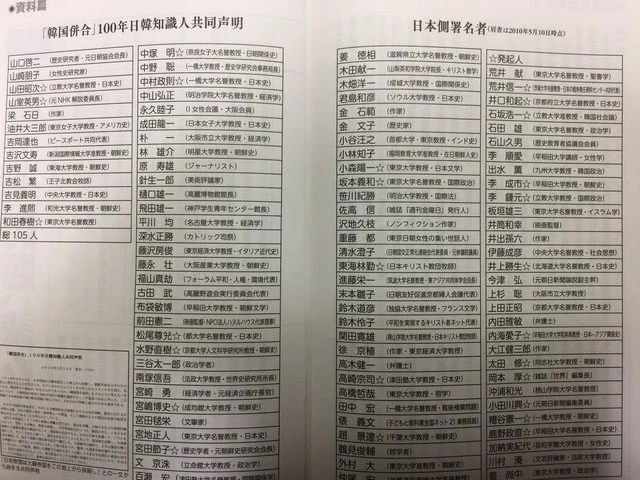China has shown no respect or genuine friendship to Japan in the last 40 years.
2020/8/12
The following is from an article by Mineo Nakajima, President of Akita International University, which appeared in the Hanada Selection, a monthly magazine entitled 'The Normalization of Diplomatic Relations Between Japan and China,' which was a mistake. [WiLL] (edited by Hanada Kazuyoshi) October 2012]
It is a must-read for Japan and the rest of the world.
The severe cost of rough-and-ready diplomacy
Exactly 40 years ago, on September 29, 1972, Prime Minister Kakuei Tanaka, who had successfully concluded diplomatic relations between Japan and China in a single stroke, returned to Japan in high spirits with Foreign Minister Masayoshi Ohira.
In the afternoon of the next day, September 30, then Undersecretary of State for Foreign Affairs Hogen Shinsaku welcomed Mr. Ohira at Haneda Airport when he arrived in the room where we, the Advisory Committee on International Relations (a private advisory body of the Chief Cabinet Secretary), was waiting for him, he was the first to praise himself, saying, 'I would give the Sino-Japanese negotiations this time not just a perfect score on a scale of 100, but a score of 120.'
As I listened to Vice-Minister Hogen's remarks, I recall being stunned by the stark difference between my views and impressions as if it were just the other day.
Meanwhile, on the Chinese side, Chairman Mao Zedong handed a copy of 'Verses of Chu' to the Japanese leader, who had allowed them to visit his apartment as a souvenir, and Prime Minister Tanaka reverently accepted it.
He has unilaterally discarded Taiwan (the Republic of China).
Regarding Chinese classical second-to-none great scholar, as the late Master Yasuhiro Masahiro lamented in his presentation of 'Verses of Chu,' a book about the late Qu Yuan who threw himself into the Miluo River was the natural equivalent of forcing a national ruin drama on the other side, Prime Minister Tanaka and the then head of The Ministry of Foreign Affairs, who were in China gasping for breath, could not possibly know to see such implications, China has manipulated Japan to approve the 'Three Principles of Japan-China Diplomatic Relations' in the Japan-China Joint Statement, and is now in the process of implementing them, it has unilaterally discarded Taiwan (the Republic of China).
Japan is still paying a high price for this hasty diplomacy, but for the amount it has settled, China has shown no respect or genuine friendship to Japan in the last 40 years.
Was the establishment of diplomatic relations between Japan and China the right choice?
As is well known, the Senkaku Islands issue has been in the spotlight in recent Sino-Japanese relations. Ten years ago, in May, there was the 'Shenyang Incident,' in which refugees who had escaped from North Korea rushed to the Japanese Consulate-General in Shenyang, only to be forcibly brought back by Chinese officials.
The truth of the 'Shenyang Incident' was discovered precisely because it happened to be broadcast on Japanese television. Still, without it, this incident might have been covered up and buried in the context of "Sino-Japanese friendship" diplomacy.
However, through the clear images of the Shenyang Incident, many Japanese people have seen the accurate picture of the Communist Party's dictatorship and China's 'Sino-Japanese friendship' diplomacy on the ground.
They have also learned that Japan-China friendship diplomacy is 'losing to China' diplomacy, and 'atonement' diplomacy is nothing more than 'Japan-China collusion'.
Moreover, even though 'friendly Japan-China' diplomacy has continued for the past 40 years, none of the pending issues between Japan and China, including the Yasukuni issue, the textbook issue, the issue of historical recognition, and the issue of the Senkaku Islands, have been settled, including the issue of the violation of sovereignty by the Consulate-General of Japan in Shenyang.
Therefore, although on the 30th anniversary of Japan-China diplomatic relations, a delegation of 13,000 people visited China to praise the 'friendship between Japan and China,' the Japanese public's feelings had already cooled off.
The combination of reports of the dangers of Chinese food and Chinese medicine, as seen in the poisoned dumpling incident in China, and the increase in crime among Chinese nationals living in Japan were probably the leading causes.
Even the single issue of the Senkaku Islands is completely baseless on the Chinese side's claims.
This year is the 40th anniversary of diplomatic relations between Japan and China, so how will they celebrate the 40th anniversary?
Here, too, the cost of hasty diplomacy remains.
This article continues.

2023/12/17 in Kyoto















